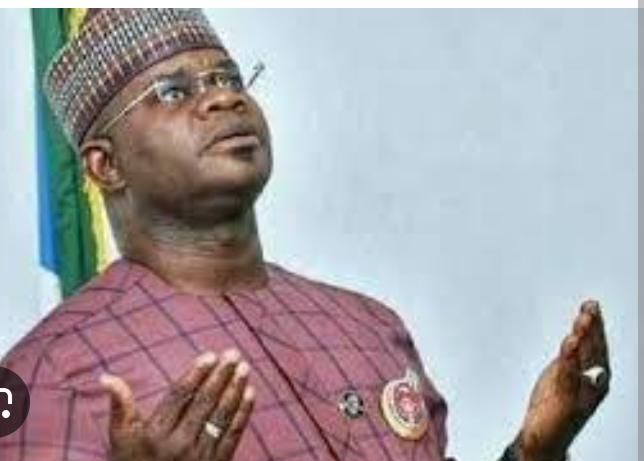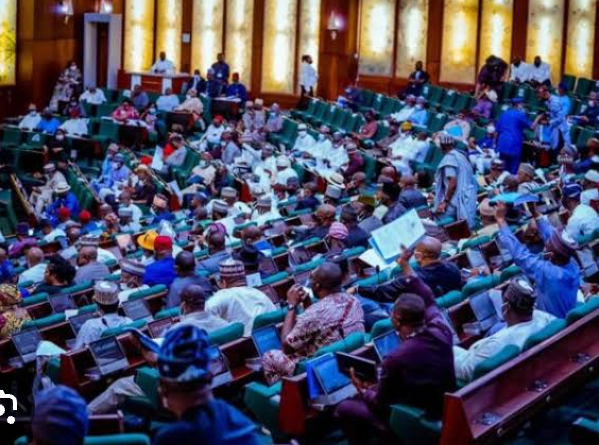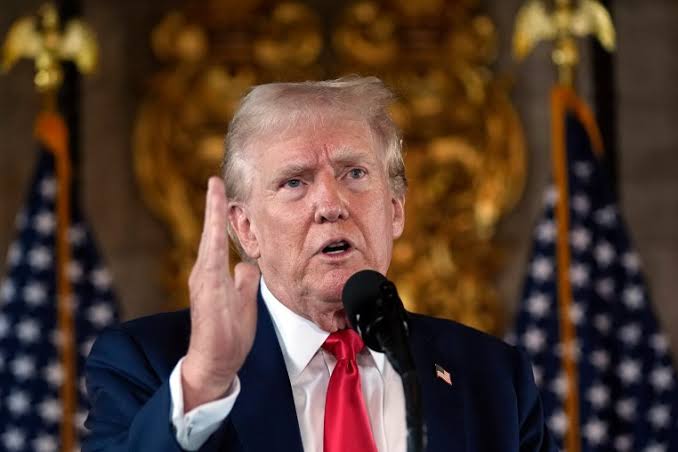News
Economic hardship: Massive contingency withdrawals hit micro pension funds

At the backdrop of heightened economic hardship subscribers to the micro-pension scheme have began to draw down on their contributions through contingency withdrawals.
The micro-pension plan, MPP, was created by the National Pension Commission to encourage low income group, mainly self employed and informal sector workers, to have a pension savings for their old age.
Financial Vanguard findings from pension data show that the contingent withdrawals by micro pension contributors in 2023 skyrocketed by 245.2 per cent to N21.4 million from N6.2 million recorded in 2022.
Also, the number of contributors that made contingent withdrawals increased by 68.4 per cent to 64 in 2023 from 38 recorded in 2022.
Contingent withdrawals is that portion of the Retirement Savings Account, RSA, balance made available for withdrawal to ease financial pressures or needs of the micro pension contributor before his/her retirement.
The sharp rise in contingency withdrawals is coming at the backdrop of underperformance being recorded in the low income pension category, with the target enrollments completely off plan.
The scheme, one of the most strategic financial inclusion measures of the Federal Government packaged and implemented by the National Pension Commission, PenCom, had envisaged to enroll about nine million registrants by 2023, however only 114,382 contributors were registered as at end of 2023.
The data also show that total pension contributions to the micro pension stood at N680.2 million as at December 2023.
Consequently, as the economic hardship continues to bite harder, some micro pension contributors are taking advantage of the contingent withdrawal option of the plan to withdraw from their pension savings.
Meanwhile, quarterly breakdown of the withdrawals in 2023 show that micro pension contributors withdrew N2.98 million in Q1’23.
The figure went up by 3.7 per cent to N3.09 million in Q2’23 and in Q3’23, the figure further increased by 238.5 per cent to N10.46 million, but dropped in Q4’23 to N4.87 million, a 53.4 per cent decline.
Experts’ insight
Speaking on the development, Executive Director of the Center for Pension Rights Advocacy, Mr. Ivor Takor, stated that the rise in the withdrawals of pension savings could continue except government fixes the economy for the better.
He said: “The contingency plan is just part of encouragement for the contributors to know that if they are passing through any challenge, they can withdraw from the contingency plan.
“And the economy, like all of us know, is so bad, so the contributors cannot have that money standing there and they are dying of hunger or sickness.
“What the government can do is to fix the economy and do things well so that people will begin to have a meaningful life because even those of us who are working you cannot be having challenges and you have money in your savings account and you will not go for it. It is expected anyway, and the trend could continue. It can only improve and get better when the situation and welfare of citizens is better.”
Also speaking, Managing Director of Achor Actuarial Services, Mr. Pius Apere stated that the MPP is designed to bring the self employed members of the public into the pension system with a view to safeguarding them from retirement age poverty.
Apere said: “The government must do all within its power to turn the economy around for the better to prevent further withdrawals from pension savings. An average Nigerian must have one form of pension scheme or the order; formal or informal and the micro pension plan can help us to include more Nigerians in the financial safety net. Micro pension can be made a big deal in Nigeria”.
According to the Director-General, PenCom, Mrs. Aisha Dahir-Umar, “The implementation of the micro pension plan will improve the standard of living of the informal sector participants at retirement and reduce dependence on extended family for support at retirement.”
She noted that the self-employed people and workers in the informal sector could reap financial and economic protection by participating in the plan, as the initiative will provide income at old age and inculcate a savings culture through highly protected and regulated investment.
News
Court fix Dec 10 to decide ex-Gov Bello’s bail

By Francesca Hangeior
The High Court of the Federal Capital Territory sitting at Maitama on Wednesday remanded the immediate past Governor of Kogi State, Alhaji Yahaya Bello, in custody of the Economic and Financial Crimes Commission, EFCC.
Trial Justice Maryann Anenih ordered that he should remain with the anti-graft agency till December 10, when the court will rule on his application for bail.
Equally remanded in custody were Bello’s two co-defendants, Umar Oricha and Abdulsalami Hudu.
The defendants had pleaded not guilty to a 16-count charge the EFCC preferred against them.
EFCC had specifically urged the court to deny the former governor bail.
The agency, through its team of lawyers led by Mr. Kemi Pinheiro, SAN, told the court that Bello, who is the 1st defendant in the matter, repeatedly refused to make himself available for trial.
It told the court that several efforts to secure his presence before the Abuja Division of the Federal High Court, where he is facing another charge, proved abortive.
Consequently, the Commission opposed a bail application that Bello filed through his legal team that was led by a former President of the Nigerian Bar Association, NBA, Mr. Joseph Daudu, SAN.
Daudu, SAN, had after the former governor and his two co-defendants—Umar Oricha and Abdulsalami Hudu—pleaded not guilty to a 16-count charge the anti-graft agency preferred against them, drew the attention of the court to a bail application his client filed on November 22.
In the application he predicated on six grounds, the former governor argued that he enjoys the presumption of innocence under the law.
News
Port Harcourt Refinery operations will tackle fuel scarcity – Reps

By Francesca Hangeior
The Chairman of the House of Representatives Committee on Petroleum Resources (Midstream), Hon. Prince Henry Odianosen Okojie, has emphasized the significant impact of the Port Harcourt refinery’s commencement of operations, describing it as a major step towards resolving fuel scarcity in Nigeria and improving the lives of its citizens.
Hon. Okojie commended President Bola Ahmed Tinubu and the Group Chief Executive Officer of the Nigerian National Petroleum Company Limited (NNPCL), Mele Kyari, for their commitment and efforts in actualizing the project. Speaking with journalists in Abuja, he stated:
“We are thrilled to express our appreciation to President Bola Ahmed Tinubu and the Group Chief Executive Officer of the NNPCL, Mele Kyari, for their tireless efforts in ensuring the Port Harcourt Refinery commences production.
We are grateful to them for making this project a reality. This monumental achievement marks a significant milestone in Nigeria’s journey towards energy independence and economic growth. Their contributions to Nigeria’s energy sector will have a lasting impact on the country’s economic development.*
“We commend President Tinubu’s leadership and vision, as well as Mele Kyari’s dedication and expertise, in driving this transformative project forward. Their commitment to strengthening Nigeria’s refining capabilities is truly commendable. This is a testament to the hard work and collaboration of all stakeholders involved.”
Representing Esan North East/Esan South East Federal Constituency of Edo State, Hon. Okojie pledged his commitment to fostering the growth of Nigeria’s petroleum industry. He assured that legislators are determined to tackle challenges in the sector for the nation’s benefit and citizens’ welfare.
Backing President Tinubu’s policies for the development of the oil and gas sector, Hon. Okojie expressed confidence in the administration’s plans for economic prosperity and infrastructure development. He also assured that the House Committee would continue to provide the legislative support necessary to advance the sector.
News
Trump threatens trade war on Mexico, Canada, China

Trump made his threat in social media posts, announcing huge import tariffs against neighbours Canada and Mexico, and also rival China if they don’t stop illegal immigration and drug smuggling into the US.
China responded that “no one will win a trade war,” while Mexican President Claudia Sheinbaum warned that “for every tariff, there will be a response in kind.”
A Canadian government source said Prime Minister Justin Trudeau called Trump and had a “productive” discussion, without giving further detail.
Such tariffs threaten to disrupt the global economy, deepen already fierce tensions with China, and upend relations with the US’s two largest neighbours.
Nervous stock markets saw “volatile trading conditions” as they digested the news, said an analyst at City Index, Fawad Razaqzada.
On his Truth Social platform, Trump said late Monday that he would enact the tariffs when he takes office on January 20, 2025, if his — vaguely worded — demands were not met.
The posts signal Trump’s intention to return to the governing style of his first presidency when he regularly shocked Washington and US partners with abrupt, major policy shifts which he announced on social media.
They also confirmed that Trump is serious about his major campaign promise to use the US economic muscle as leverage on issues having little to do with trade — namely his claim that the US is under siege by foreign crime and dangerous migrants.
On Tuesday, Trump named two important figures to his economic team: Jamieson Greer as his trade representative and Kevin Hassett as his top economic advisor, heading the White House National Economic Council.
Both had roles in his first administration, with Greer serving as the Chief of Staff to former US Trade Representative Robert Lighthizer.
“I will sign all necessary documents to charge Mexico and Canada a 25 per cent tariff on all products coming into the United States,” Trump earlier posted.
“This tariff will remain in effect until such time as drugs, in particular Fentanyl and all illegal aliens stop this invasion of our country!” he said.
In another post, Trump said he would be slapping China with a 10 per cent tariff, “above any additional tariffs,” because the world’s second-biggest economy was failing to execute fentanyl smugglers.
The spokesman for China’s embassy in the US, Liu Pengyu, told AFP, “China believes that China-US economic and trade cooperation is mutually beneficial in nature.”
Mexico’s Sheinbaum fired back at Trump, saying his tariffs diplomacy was “not acceptable” and based on erroneous claims.
“It is not with threats or tariffs that the migration phenomenon will be stopped, nor the consumption of drugs in the United States,” she said.
Sheinbaum pointed out that the Mexican narcotics industry largely exists to serve demand in the US.
“Seventy per cent of the illegal weapons seized from criminals in Mexico come from your country.
“Tragically, it is in our country that lives are lost to the violence resulting from meeting the drug demand in yours,” she said.
– Bluster or serious? –
A senior adviser at the Centre for Strategic and International Studies, William Reinsch, said Trump’s online threats may be bluster — a strategy of “threaten and then negotiate.”
However, Trump’s first White House term was marked by an aggressive and protectionist trade agenda that also targeted China, Mexico and Canada, alongside Europe.
While in office, Trump launched an all-out trade war with China, imposing significant tariffs on hundreds of billions of dollars of Chinese goods.
China responded with retaliatory tariffs on American products, particularly affecting US farmers.
Economists say tariffs can hurt US growth and fuel inflation since they are paid by importers who often pass those costs on to consumers.
Trump has said he would put his Commerce Secretary-designate Howard Lutnick, a China hawk, in charge of trade policy.
AFP
-

 Metro13 hours ago
Metro13 hours agoSAD! Gas explosion rocks Lagos market, 11 shops damaged
-

 News13 hours ago
News13 hours agoEFCC opens up on Yahaya Bello, says he didn’t surrender but nabbed
-

 Metro13 hours ago
Metro13 hours agoMany admitted after reacting to drugs shared during free medical outreach
-

 Metro12 hours ago
Metro12 hours agoGunmen kidnap Akwa Ibom businessman, kill driver
-

 News12 hours ago
News12 hours agoThree soldiers killed as troops repel terrorists in Borno
-

 News12 hours ago
News12 hours agoFinance ministry amendment bill scales second reading
-

 News13 hours ago
News13 hours agoAdebayo Defends National Assembly’s Power to Remove CCT Chairman
-

 Sports13 hours ago
Sports13 hours agoJust in: Man city wobbles after 3-0 lead as Feynoord from behind equalises








